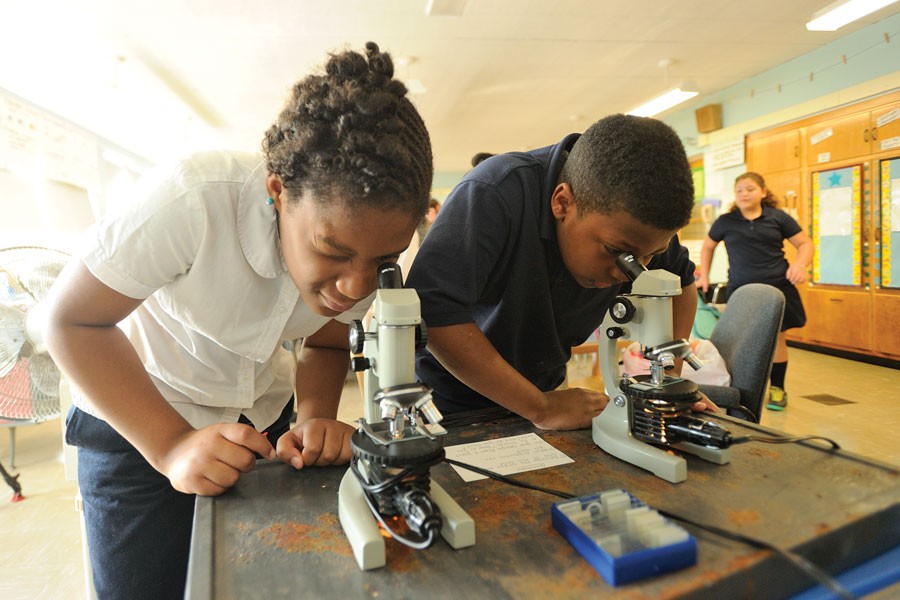Supported by a five-year $7.4 million National Science Foundation grant, Johns Hopkins experts are partnering with Baltimore City Public Schools to enhance teaching and learning in science, technology, engineering, and math. The program, called STEM Achievement in Baltimore Elementary Schools, or SABES, not only will benefit more than 1,600 students in grades three through five in nine city elementary schools, but could also become a national model for STEM education.
The project will engage more than 40 teachers in three local communities and will involve parents, after-school care providers, local businesspeople, community groups, and experts from Johns Hopkins, the Maryland Science Center, and the National Aquarium. The program will provide professional development for teachers, as well as curricular enhancements and training to enable after-school program providers to augment STEM education by involving children in activities that have resonance in their communities.
"Our aim is that this partnership will build excitement around science, technology, engineering, and mathematics," says Michael Falk, principal investigator for SABES and associate professor of materials science and engineering in the Whiting School of Engineering. "Our hope is that this model could eventually be extended to other school systems around the country to foster STEM educational achievement among all students, including those of different ethnicities, language proficiencies, and income levels."
According to Falk, it's vitally important to engage today's elementary-age students in STEM learning at a high level to prepare them for the 21st- century job market. "Nationally, the jobs being created require high amounts of skill with respect to science and mathematics," says Falk. "By engaging students early, we hope that they are prepared to meet that need and participate in the modern workforce fully."
Posted in Science+Technology, University News








